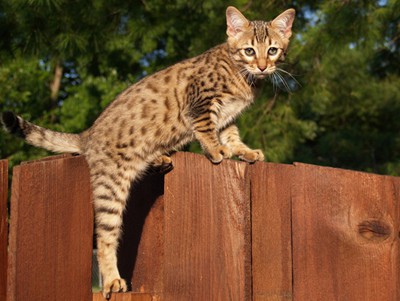
What do you do if you’ve lost or found a pet? Don’t panic. There are several places you can call for help:
Mountain Aire Veterinary Hospital (661) 248-7387
We attach photos of pets to their records to help with recognition/making flyers and have microchip scanners available at the office.
Shelter on the Hill (661)245-5012
The Mountain Enterprise Newspaper (661)245-3794
You can place a lost/found ad in the newspaper to help spread the word.
Print Up Flyers to post around town, and hand to your local FedEx and UPS delivery drivers.
Prevention and Recovery Checklist
Don’t kid yourself that your well-adjusted, family-oriented pet won’t bolt under the right (or wrong) circumstances. A house or wildfire, earthquake, severe storm, loud party or nighttime intruder could prove you wrong. You can seriously improve your pet’s changes of recovery by taking these proactive steps:
Always collar and tag and microchip your pet. Pets found without collars can be adopted by strangers who assume they’re strays. Remember, however, that collars and tags can be removed or fall off so always back up your pet’s ID with a sub-dermal microchip. Be sure to register the chip, too! Microchips are worthless if they aren’t linked to an owner’s proper contact information. Microchipping is a service we offer at Mountain Aire Veterinary Hospital for Shelter on the Hill. Every animal that comes through our door we scan for a microchip,
If your pet is shy or skittish, consider adding a “I’m afraid, not abused” tag to their collar. Strangers may assume a cowering pet has been mistreated and deliberately not return them.
Travel safely. Use a non-slip collar to prevent your surprised or frightened pet from slipping free in strange territory. Crate your pet in the car to be sure they don’t escape in the event of an accident. Seatbelts are just as effective in preventing pet injuries as they are for human children. Never, ever travel with a dog loose or tied in a truck bed!
Have current photos of your pet available. The key word is current. Adult dogs often look quite different than their adorable puppy picture. The same goes for before and after visiting the groomer. Please note that Mountain Aire Veterinary Hospital attaches digital photographs of each pet to their medical file.
Have proof of ownership. There’s no guarantee that the person who finds your pet is going to willingly give them back. Current medical records and a microchip is your best proof of ownership, please ensure that your microchip is properly registered.
Be neighborly. Introduce yourself and your pets to your neighbors. This makes it more likely for them to alert you if your pet is spotted running about unsupervised. Also make sure you’re a good neighbor. If your pet frequently roams, barks, eliminates in their yard or otherwise annoys your neighbors, they may not be so quick to alert you to a sighting.
Secure your property. Make sure fences are high enough to deter the most athletic pets as well as deep enough to foil the most determined diggers. Pets are problem solvers, too, so avoid creating “launch pads” with furniture or trash cans. Here is a link to Roll Bars for Fences and Catios.
Train your pet not to bolt through open gates and doors. Work through other behavioral issues such as relentless digging or not coming when called.

